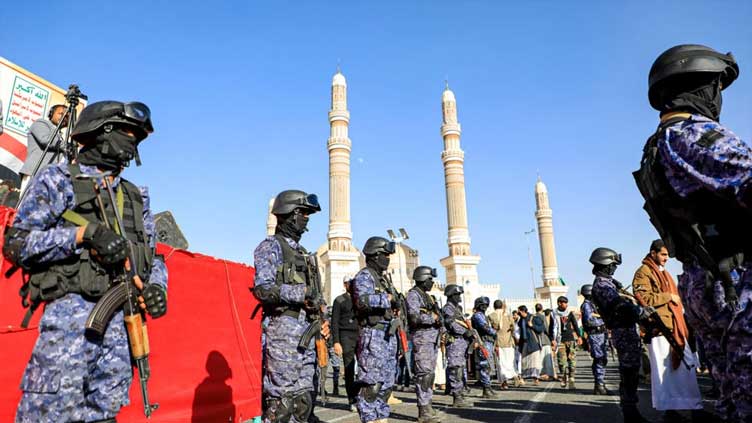US says Iran 'deeply involved' in Huthi ship attacks

World
US says Iran 'deeply involved' in Huthi ship attacks
Washington (AFP) – The White House publicly released US intelligence as the Iranian-linked Yemeni insurgents persist with ship strikes they say are in solidarity with Palestinians in the Gaza Strip, where Israel is battling Hamas militants.
The White House said that Tehran's clerical state has provided drones and missiles to the Huthis as well as tactical intelligence.
"We know that Iran was deeply involved in planning the operations against commercial vessels in the Red Sea," National Security Council spokeswoman Adrienne Watson said.
"We have no reason to believe that Iran is trying to dissuade the Huthis from this reckless behavior," she said.
The Huthis, who control vast parts of the Arabian Peninsula's poorest country including the capital Sanaa, have launched more than 100 drone and missile attacks, targeting 10 merchant vessels, according to the Pentagon.
With commercial traffic increasingly disrupted, the United States recently announced a multinational naval task force of more than 20 countries to protect vessels transiting the Red Sea.
In a show of force, the US aircraft carrier USS Dwight D. Eisenhower has entered the Gulf of Aden, with a series of news reports saying President Joe Biden's administration is weighing military strikes if the ship attacks persist.
Rebel leader Abdel-Malek al-Huthi warned Wednesday that if they were attacked, the rebels would strike back against "American battleships, American interests and American navigation."
Drones, missiles and monitors
The White House said that US visual analysis found nearly identical features between Iran's KAS-04 drones and the unmanned vehicles fired by the Huthis, as well as consistent features between Iranian and Huthi missiles.
The Huthis are also reliant on Iranian-provided monitoring systems at sea, the White House said.
"Moreover, Iranian-provided tactical intelligence has been critical in enabling Huthi targeting of maritime vessels since the group commenced attacks in November," Watson said.
Despite the findings presented by the White House, there have been doubts among some US and allied policymakers on whether the Huthis are acting at the behest of Iran.
One diplomat from a US ally who follows the region noted that Lebanon's Hezbollah -- which has much closer ties with Iran -- has been comparatively restrained in the face of US warnings including a show of naval might in the Eastern Mediterranean.
"Of Iran's proxies in the region, the Huthis have the weakest link to Tehran. And it is hard to see how the attacks serve their or Iran's interests," the diplomat said on condition of anonymity.
The Biden administration had initially kept a low-key tone on the Huthi attacks, in part out of an interest in preserving a fragile peace in Yemen.
The Huthis and the Saudi-backed government have effectively maintained a UN-brokered truce since April 2022, halting a devastating war that triggered a humanitarian crisis in which most of the population relies on aid.
In a recent research paper, Michael Knights, a fellow at The Washington Institute for Near East Policy, said that the Huthis shared the "paranoid" mindset of Iran's ruling clerics.
The United States should think of the Huthis as a sort of North Korea, "an insular, aggressive, well-armed player that is hostile to the United States and sitting on key geography," he wrote.
Iran's religious leadership openly supports Hamas, whose gunmen broke through Gaza's militarized border on October 7 and killed around 1,140 people in Israel, mostly civilians, and abducted around 250 people, according to an AFP tally based on Israeli figures.
US officials have said they have no evidence that Tehran had previous knowledge or directly planned the attack.
Israel has vowed to destroy Hamas. Its relentless bombardment and ground invasion of Gaza has killed more than 20,000 people, most of them women and children, according to Hamas authorities.


